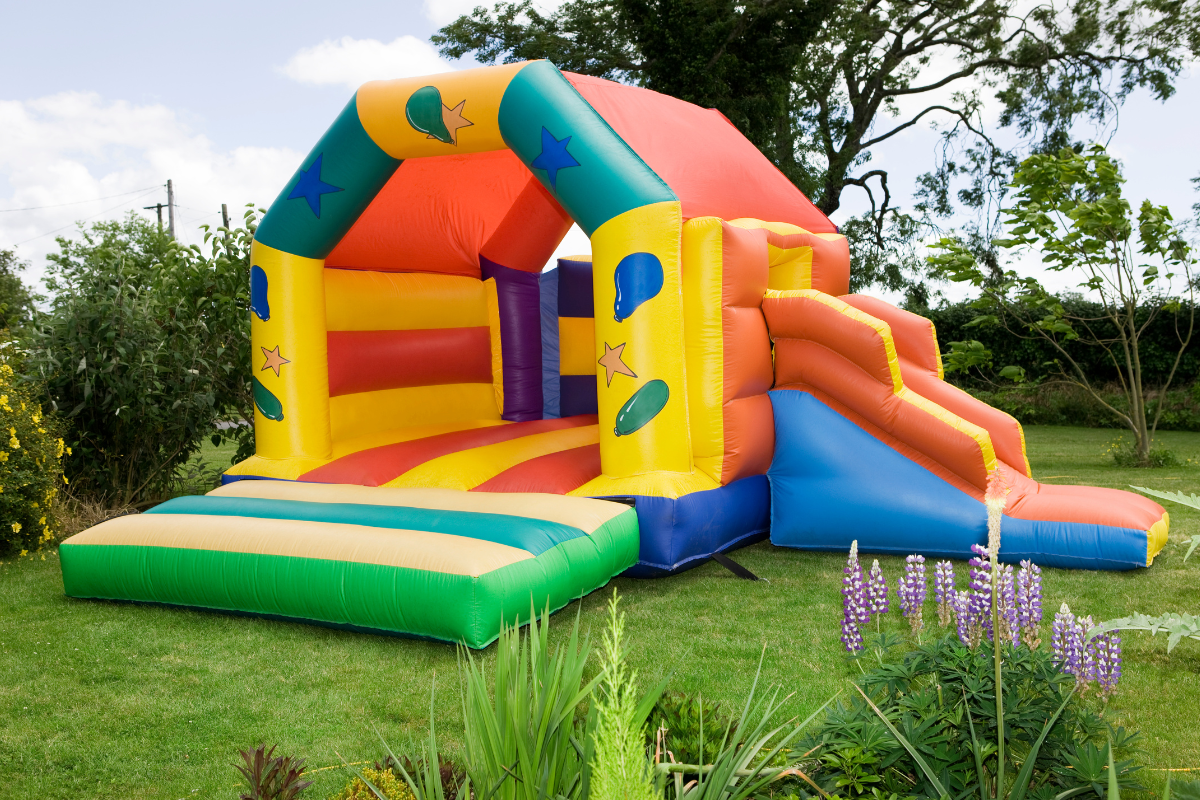
One of my favorite side hustles is buying low and selling high.
This is the business model of Amazon, Walmart, and pretty much every other store in the history of stores. You buy inventory at one price and resell it at a higher price. It works great, but you still have to buy that initial inventory.
What if you wanted to start with super low upfront costs?
Turns out, there are lots of ways to get “free” stuff to resell, and I want to walk you through 10 of those methods in today’s show.
Let’s get right to it!
Download Your Free Bonus

Want $500?
Join the Free 5-Day $500 Challenge. I'll show you step-by-step how to add $500 to your bottom line.
Almost there!
Where should I send
Step 1?
You're in! Want to supercharge your challenge? Grab the companion workbook and earn $125 more (on average).
I'll also send you my best side hustle tips and weekly-ish newsletter.
Opt-out anytime.
1. Free Stuff From Craigslist or Facebook Marketplace
In episode 72, Ryan Finlay shared how he makes a full-time living buying and selling items on Craigslist.
Craigslist and Facebook Marketplace are teeming with free “inventory” you can resell, especially in bigger cities. Ryan shared how he found out about this tactic — when someone posted an ad for a broken 42-inch LCD TV.
Ryan was the first to respond, and he drove to the man’s home some 25 minutes away to pick it up. By the time he got there, the man already had over 90 emails inquiring about the free TV.
That goes to show that the competition for free stuff is stiff, so what if you’re not the fastest person? Easy. Decide how much that item is worth to you and offer to buy it for that price.
With this tactic, you’ll likely get the item even if you were the 30th person to reach out because it communicates to the person giving the item away that you value it more than anyone else.
Although Ryan specifically talks about Craigslist, you can easily apply his tactics to whatever today’s classifieds marketplace of choice is.
2. Dumpster Diving
Tiffany She’ree is known as Dumpster Diving Mama (@dumpsterdivingmama) on TikTok, where she now has over 3 million followers.
The mom of four told Yahoo News that she made over $30,000 in 2018 just selling her dumpster finds.
Examples of treasures she’s found in the most unassuming places include a $3,000 armoire, brand-new unopened makeup, a Michael Kors handbag, and boxes of brand-new pet food.

Tiffany keeps some of the items she finds, but she sells the majority of her scores via garage sales and platforms like Facebook Marketplace, Mercari, and Poshmark.
As far as strategy goes, dumpsters behind higher-end stores in more affluent neighborhoods would probably be your best bet. But Tiffany stressed that consistency is key.
“I just go every day and it’s a hit or miss. Sometimes you win, sometimes you lose. It’s part of the fun!”
Be sure to follow along at @dumpsterdivingmama and DumpsterDivingMama.com for more.
3. “Reverse Logistics” Reselling
Another way to score some free inventory to resell is to do reverse logistics.
Direct-to-consumer brands typically offer some form of risk reversal like a money-back guarantee to get people off the fence and ready to buy.
But when a customer does return a product, the company can’t really turn around and resell that product as new anymore because it’s not. And they can’t resell it as used themselves without undercutting or cannibalizing their primary business.
That’s why they turn to companies like Sharetown.
Sharetown helps direct-to-consumer brands deal with return requests. In turn, the company dispatches local reps to pick up the products, clean them up, and list them for resale.

And to make it easy and attractive for those reps, Sharetown only has them pay for the product after it sells, making this strategy another solid way to get some risk-free inventory at a very low cost.
Staci Aburto reported earning $3,000-$4,000 a month flipping furniture as a Sharetown rep in Phoenix, Arizona. She and her husband spend 6-10 hours a week on the business.
If I take the low end of her earning estimate ($3,000) and the high end of her hourly input (10 hours a week), that works out to about $75 an hour or around $37 per hour each (if both she and her husband are putting in the 10 hours a week).
No matter how you slice it, that’s a pretty well-paying side hustle!
4. Print on Demand
Print on demand is a “hybrid” product business because you’re selling physical goods but you never see or touch them. You don’t have any physical inventory to hold. You’re just uploading digital designs, which makes this a super low overhead business to start.
In episode 520, Heather Johnson of HeatherXStudio.com shared how she thinks about pricing this “free inventory” business.
“I try to generally price my items with a 30-40% profit margin,” Heather told me.
With T-shirts, this works out to about a $10 profit. But Heather often runs a 15-20% off sale on her Etsy store, so that eats into the profit margin. Plus, there are fees to take into account.
For example, Heather said she usually sells the Bella + Canvas 3001 T-shirts. The shirt sells for around $8 on Printify, but Heather lists her shirts for $18 on Etsy.
But because Etsy’s new boosted transaction fee is 6.5% and because Heather has to factor in shipping if the customer qualifies for free shipping, her profit comes out to $8-9 per shirt.
Again, you can learn more about Heather’s business in episode 520. Similar models would include printables and digital products on Etsy or e-books or paperback journals on Amazon Kindle Direct Publishing.
The other advantage here is you can create something once and sell it over and over again.
5. eBay Consignment
You probably know someone who’s got a bunch of things they want to get rid of but never gets around to it because they don’t want to take pictures, create listings, and deal with shipping.
This is where eBay brokers like Jamie McGlothlin of Brodjam.com come in. For a fee, she’ll take the item out of your hands and sell it for you.
Jamie has been doing this side hustle for years, and it’s turned into a full-time business.
It all started in 2005 when she decided to sell an old frame sketching she picked up at a flea market for $35. It ended up selling under auction for $700.

A co-worker ended up asking Jamie if she’d be interested to help them sell some dolls they wanted to get rid of. Jamie agreed and listed the dolls at a starting price of $9.99 under action.
Almost all of the dolls sold for $100-150, much to Jamie and her co-worker’s excitement.
Jamie’s co-worker had a large collection of dolls, and that kept her busy for a while. Eventually, she started meeting other doll collectors through her online interactions.
Jamie now charges a 37% commission, which covers all eBay and merchant fees as well as shipping costs. Her average annual gross sales amount is around $350,000.
Again, thank you to Jamie for sharing that.
6. Consignment Events and Flash Sales
Continuing with the consignment theme, in episode 486, Megan Church described starting Pineapple Consignment as an events-based business where she would spend months organizing the venue, curating her inventory, and marketing the event.

The whole process was a lot of fun, even if the first run of it was only modestly profitable. However, the pandemic forced Megan to take her consignment business online. The process she set up to sell online looks like this:
- Sellers submit pictures and measurements of the items they want to sell through a Google form.
- Megan picks 30-50 items of the best items for sale.
- She creates graphics for each one using Canva. The graphics include the price and measurements of the items.
- She drops a sneak peek of each graphic on her Instagram to promote the items ahead of the sale.
- On sale day, she lists the items for sale, operating on a first-come, first-served basis.
Megan keeps track of the items using Excel spreadsheets and creates waitlists for each one to keep things fair. Once an item is paid for, she would connect the buyer and the seller through Instagram direct messages and monitor the transaction.
This meant that Megan often never saw or held the items she sold. But by being involved in the transaction, she was able to curate a safe environment for people. “It was similar to Facebook Marketplace in model, but I took out the pain points,” she explained.
For online sales, Megan takes 30% of the sales price and passes 70% on to the seller. Again, it’s really impressive what Megan’s built. Be sure to follow along at @pineappleconsignment on Instagram for more and check out episode 486 for the full interview.
7. Flyp
One interesting new way to source inventory is the free Flyp app. Flypp connects resellers with people who have name-brand clothes, shoes, or vintage accessories they want to get rid of.

Inside the app, you can bid on “lots” (bundles of products) from Flyp members by sharing what you think the items should sell for and the commission percentage you’ll charge for selling them.
Typical commission rates on Flyp are 30-50% but note that you’ll need to pay marketplace fees with those earnings. That said, I think it’s worth a look if you’re focused on the clothing niche.
8. Estate Sales and Auctions
I connected with a Side Hustle Show listener who specializes in estate sales. What he does is reach out to local realtors getting ready to list a property.
Realtors have a vested interest in getting inventory and items cleared out of houses so they can get them staged and sold and collect their own paycheck.
The organizer will take 25% of everything that sells, and they will typically enlist the help of some online auction networks to reach a wider audience of buyers and then tack on a 15% fee to the buyer.
So, if there’s a $100 item, the estate sale organizer will earn $25 from the seller and the buyer will end up paying $115 for it after the buyer fee. The organizer would earn $40 in total.
Now, this side hustle does take a lot of work in terms of organizing the inventory and prepping it for sale, but you can see how it can pay off pretty nicely if a house has $10,000-20,000 worth of stuff in it.
9. Pallet Flipping
This next side hustle has been described as “the middleman method,” where you essentially take business byproducts and play matchmaker between buyers and suppliers.
In Varnie Sambola’s case, he flips wooden pallets for profit. Varnie started his business, MV Pallet Solutions, in 2020 and has already scaled it to $1,000 a day (and beyond).
He credits John Wilker’s Simplest Biz course with helping him get started.
What he does is buy used pallets at a very low price from companies that receive pallets daily as part of their product shipments.
He then posts the pallets online on Facebook, waits for companies to reach out, or goes out himself to look for businesses that could use pallets.
Sometimes, Varnie would even score inventory for free.
For more on this specific side hustle, check out episode 274 to hear John Wilker talk about his pallet-flipping business.
10. Drop Shipping
Rounding out this list is drop shipping, which comes in a lot of different flavors. The specific type I have in mind is what might be called “high ticket” drop shipping.
In broad strokes, drop shipping is where you sell a product on behalf of a manufacturer or supplier but don’t touch the inventory. When you make a sale, they ship it to the customer on your behalf, so you don’t have the inventory risk of having purchased it on speculation up front. You don’t have the storage and shipping logistics either.
In episode 294, Rene Delgado talked about starting an online drop shipping store for bounce houses. He had the following criteria in choosing his niche:
- The products had to cost over $500
- The products had to be drop shipping-friendly
- The products had to be hard to find in brick-and-mortar stores
- The products had to have over 20,000 unique Google searches every month
By “drop shipping-friendly,” Rene meant products from industries where he could easily establish a relationship with manufacturers. Using that criteria, Rene narrowed down his niche to three items, ultimately selecting bounce houses. He started BounceHouseStore.com, where he sells bounce houses. He made $300k in sales in his first year in business.

Rene says he aims for 12-15% profit margins, meaning for every $1,000 worth of product he sells, $120-150 of that will flow through to his bottom line.
Now, this business model does take a lot of work upfront to develop the storefront and build supplier relationships, but it’s viable nonetheless.
One thing to consider though is how you’ll differentiate yourself from other drop shippers selling the same product from the same suppliers at the same price.
Bonus Idea #1
Bonus Idea #2
Sponsor
- LMNT – Claim your free 8-serving sample pack with any purchase!
Download Your Free Bonus

Want $500?
Join the Free 5-Day $500 Challenge. I'll show you step-by-step how to add $500 to your bottom line.
Almost there!
Where should I send
Step 1?
You're in! Want to supercharge your challenge? Grab the companion workbook and earn $125 more (on average).
I'll also send you my best side hustle tips and weekly-ish newsletter.
Opt-out anytime.
Links and Resources
- Episode 72: How to Make a Full-Time Living on Craigslist
- ReCraigslist.com
- DumpsterDivingMama – TikTok
- DumpsterDivingMama.com
- Sharetown
- Episode 501 – Inside the Sharetown Mattress Return Pickup and Resale Side Hustle
- Episode 520 – Building a $15K/Month Print on Demand Business on Etsy
- HeatherXStudio.com
- Etsy
- Printify
- Amazon Kindle Direct Publishing
- Brodjam.com
- Episode 486 – How to Start a Consignment Business w/ Popup Events, Online Sales, or a Storefront
- Pineapple Consignment
- Canva | How to Make Money Using Canva
- PineappleConsignment – Instagram
- Flyp
- MV Pallet Solutions
- Simplest Biz
- Episode 515 – $1000 a Day Flipping Used Pallets, with Varnie Sambola
- Episode 274 – The Middleman Method: A Real-Life Example of Turning Trash into Treasure, with John Wilker
- Episode 294 – How to Start an Online Store with No Ideas and No Inventory (and still sell $300k in your first year)
- BounceHouseStore.com
Looking for More Side Hustle Help?
- Start Your Free $500 Challenge. My free 5-day email course shows you how to add $500 to your bottom line.
- Join the free Side Hustle Nation Community. The free Facebook group is the best place to connect with other side hustlers and get your questions answered.
- Download The Side Hustle Show. My free podcast shares how to make extra money with actionable weekly episodes.
554-_10_Ways_to_Get_Free_Items_to_Flip_for_a_Profit.mp3 (260 bytes)



